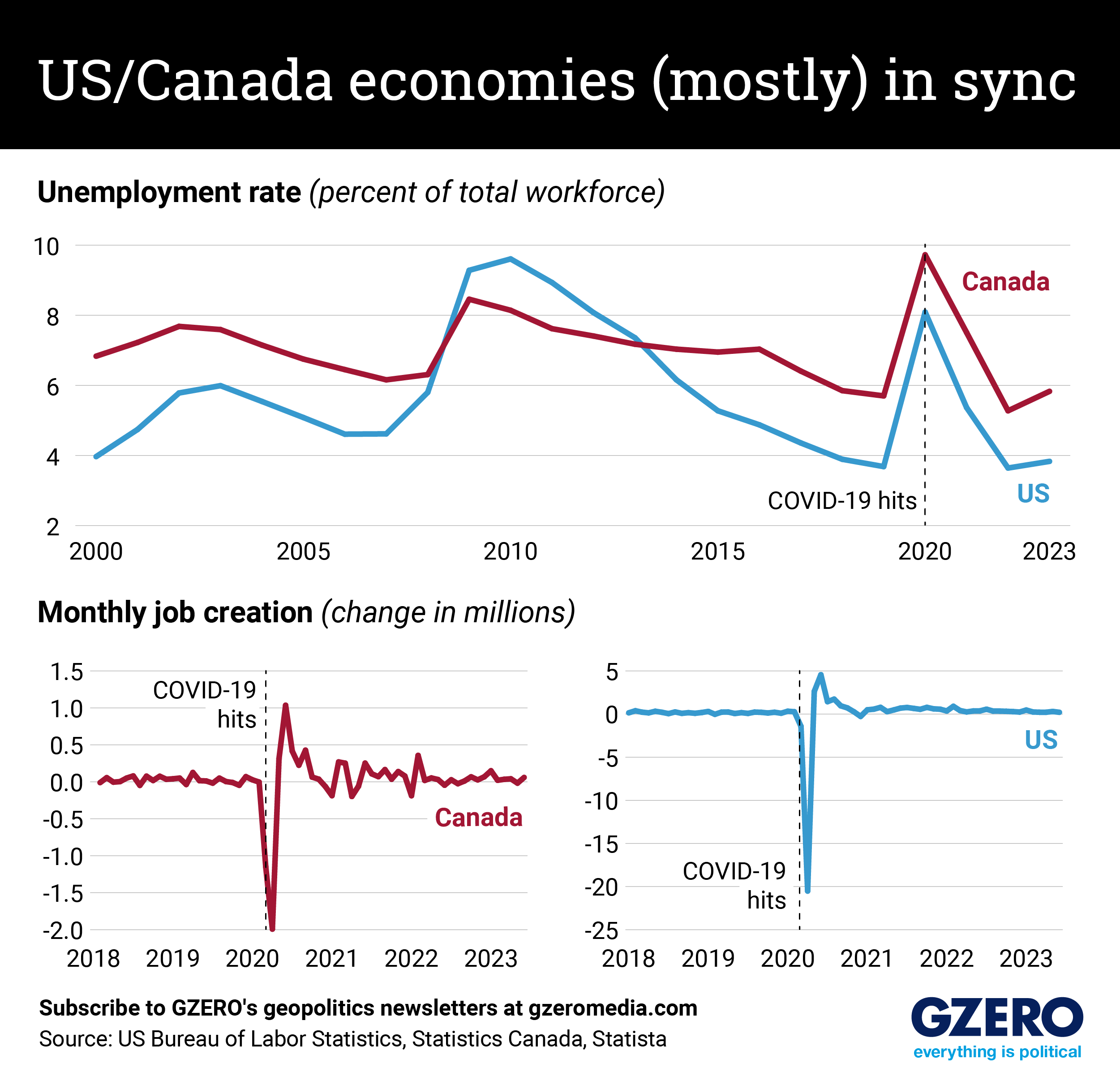July 13, 2023
The US and Canadian economies are so closely intertwined that they mostly experience comparable labor and employment trends at a given time. Still, there are some key differences.
Both economies saw a solid rise in unemployment in 2008 amid the Great Recession. And though the American workforce was harder hit, it was able to recover and boost its labor participation rate faster due to the resilience and breadth of the US economy.
Now, in the post-COVID era, the two economies are experiencing strong rebounds and tight labor markets, adding a solid number of new jobs each month despite hiking interest rates to rein in inflation. Still, though the US labor force is way larger, last month’s labor numbers show that Canada added more jobs relative to its population size . We see how the two have stacked up since 2000.
More For You
People in support of former South Korean President Yoon Suk Yeol rally near Seoul Central District Court in Seoul on Feb. 19, 2026. The court sentenced him to life imprisonment the same day for leading an insurrection with his short-lived declaration of martial law in December 2024.
Kyodo
65: The age of former South Korean President Yoon Suk Yeol, who was sentenced to life in prison on Thursday after being found guilty of plotting an insurrection when he declared martial law in 2024.
Most Popular
In an era when geopolitics can feel overwhelming and remote, sometimes the best messengers are made of felt and foam.
Hungarian Prime Minister Viktor Orban holds an international press conference in Budapest, Hungary, January 5, 2026.
REUTERS/Bernadett Szabo/File Photo
The Hungarian election is off to the races, and nationalist Prime Minister Viktor Orbán is facing his most serious challenger in 16 years.
How people in G7 and BRICS countries think their policies will effect future generations.
Eileen Zhang
Does skepticism rule the day in politics? Public opinion data collected as part of the Munich Security Conference’s annual report found that large shares of respondents in G7 and several BRICS countries believed their governments’ policies would leave future generations worse off.
© 2025 GZERO Media. All Rights Reserved | A Eurasia Group media company.
